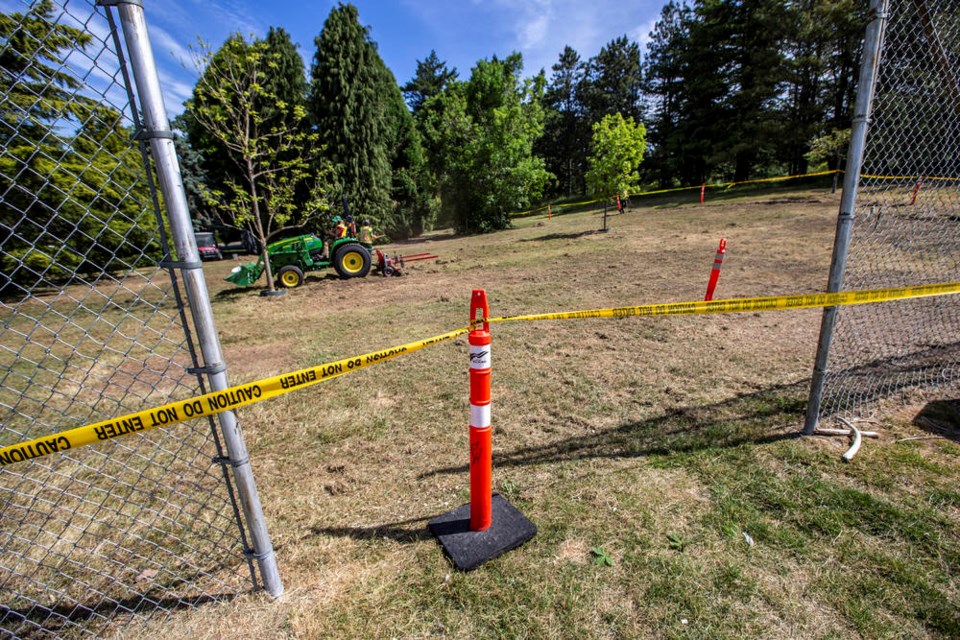Victoria councillors voted Thursday to ban sheltering in Beacon Hill Park for at least two years to allow the area to be restored after people were allowed to set up tents during the pandemic.
The proposal arose from a report by Mayor Lisa Helps, supported by councillors Charlayne Thornton-Joe and Marianne Alto, that also advocates a fundamental shift from accepting homelessness as an inevitability to creating enough housing, shelter beds and services to effectively end homelessness.
Helps said at committee of the whole she thinks it’s inhumane that when people lose their home, they end up living in a park, but there are many other parks where people can shelter if they need to.
“Beacon Hill Park has done more than its share over the past year, and it was an outdoor sheltering site in the middle of a global health pandemic, but it is not a campground. And so, it needs time to recover,” she said.
Helps said permitting overnight sheltering wouldn’t allow for the remediation necessary, because people would likely stay in the same areas during the day even if they were required to take down their tents.
Staff told councillors 10 of the city’s 138 parks have washrooms, and they are fairly evenly distributed throughout Victoria. Included in that list is Topaz Park, where a sheltering ban is in place, and Beacon Hill Park. Sheltering is currently prohibited in 23 parks, while overnight camping is allowed in the rest, including Beacon Hill.
Alto said she suspects a small number of people have sheltered in Beacon Hill Park for decades, but an “unprecedented” level of sheltering has driven the area to a point where recovery is necessary, and the provincial investments in indoor spaces have provided a place for hundreds of people previously unhoused to go.
“I see no better time for us to take the opportunity to look at Beacon Hill Park as the gem that it is for everyone for all purposes, and to give it a rest,” she said.
Councillors Sarah Potts and Sharmarke Dubow opposed the sheltering ban, while councillors Jeremy Loveday and Ben Isitt recused themselves.
The vote will go to a June 17 council meeting to be ratified.
Potts said it feels premature to enact a ban, because city parks staff have not yet reported back to council on the damage done to parks and council is expecting a report on complex-care housing.
“I just don’t believe that this actually solves anything. What it will do is it will displace challenges, perceived or real, into other parks,” she said.
Marko Curuvija, project director for the Existence Project, an organization that uses storytelling to humanize public discourse, said he was surprised and frustrated that councillors decided to move forward with a sheltering ban.
Members of the Existence Project have been spending time with people in the park since the beginning of the pandemic, Curuvija said, and have heard there are many reasons why people choose to shelter there. Some feel the housing options offered are unsafe, while others have established communities and relationships in the park.
Those who live there say Beacon Hill is the only city park large enough to offer privacy and the space to choose who they live near. It’s also closer to downtown services for people who use drugs, he said.
“We’re in an opioid epidemic and that’s going to push them farther and farther away from their services that they need and probably result in deaths that are not necessary,” Curuvija said.
Roy Fletcher, president of the Friends of Beacon Hill Park Society, said he was glad councillors voted in favour of a sheltering ban, but he would have liked it to be permanent.



